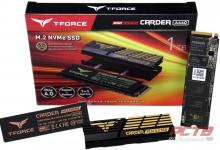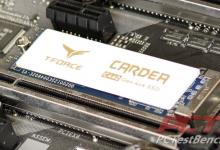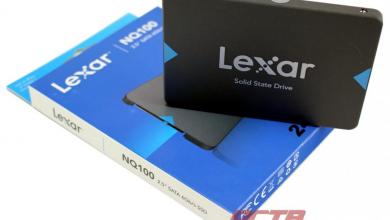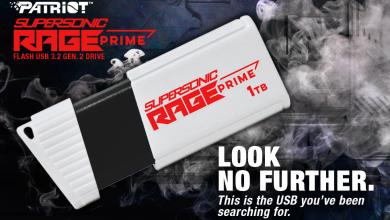Testing
Initialized as GPT and formatted as NTFS in windows, we get a useable space of 931GB.
CrystalDiskInfo
CrystalDiskInfo shows our drive connecting to the system at its full PCIe 4.0 x4 bandwidth using NVMe 1.3.
Sequential Testing – Variable Queue Depth
We see pretty solid performance at low queue depth which is where most consumers are going to be using most of the time. Performance levels off from QD4 and up.
Random Testing – Variable Queue Depth
The 8-channel controller and DRAM cache lend themselves to very high random write performance as small chunks of data can be aggregated and written efficiently but reads and mixed don’t climb quite as quickly with queue depth.
CrystalDiskMark 7.0
“CrystalDiskMark is designed to quickly test the performance of your hard drives. Currently, the program allows measuring sequential and random read/write speeds.”
We test using the “Real World” preset in CDM which uses a single thread and lower queue depth, so the results look worse than the advertised 5000/4400MB/s speeds. This is to be expected, but shows you how the drive will perform outside of synthetic testing: quite well!
ATTO Disk Benchmark
ATTO shows the US70 ramp up to full speed about the 256KB block size. We see read speeds clear 5.2GB/s and right around the 4GB/s mark on writes, quite impressive.
Anvil’s Storage Utilities
Anvil gives us a score of almost 20,000 points. Max read and write speeds in this test land just about the 4GB/s mark in both directions. latencies look decent, and we hit a pretty impressive 453k IOPS on writes. This blows every PCIe 3.0 drive we’ve tested right out of the water.





Check Out Our Amazon Store with Modders Inc
Please Support PCTestBench as Every Purchase Helps